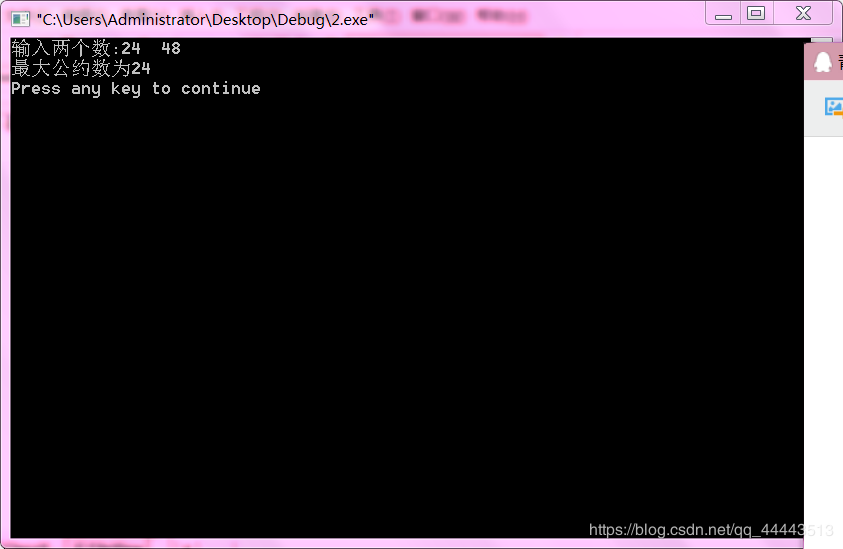Chapter 2 Algorithms - the Soul of Programs
Example 2.1 Factorial of Five
#include <stdio.h>
int main()
{
int i = 1, j;
for ( j = 1; j < 6; j++ )
i = i * j;
printf( "5!=%d\n", i );
}
The results are as follows:
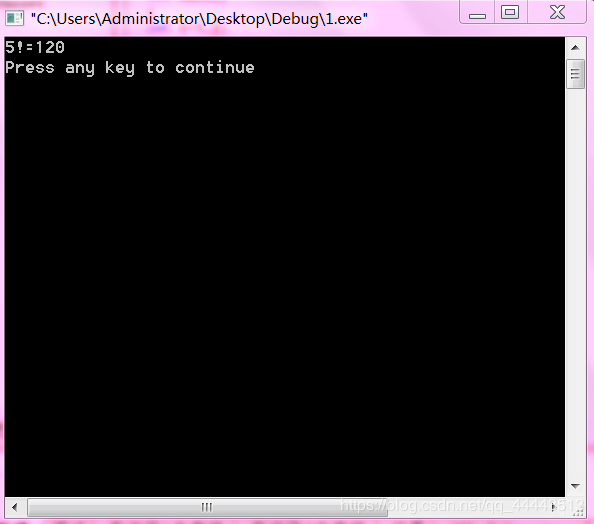
Example 2.3 determines whether each year from 2000 to 2500 is a leap year and outputs the results.
#include <stdio.h>
int main()
{
int i;
for ( i = 2000; i <= 2500; i++ )
if ( i % 4 = 0 && i % 100 != 0 || i % 400 = 0 )
printf( "%d\t", i );
else
continue;
}
//The results are as follows:
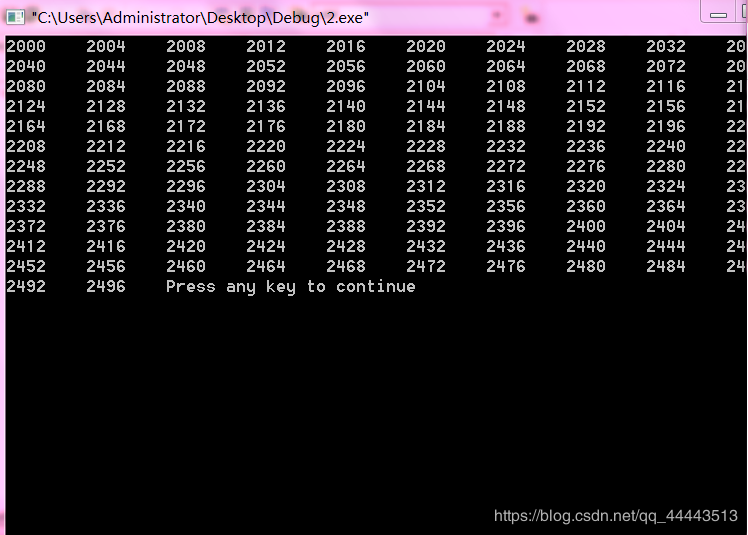
Example 2.4 Seek 1-1/2+1/3-1/4+'''+1/99-1/100
#include <stdio.h>
int main()
{
int sign = 1;
double deno = 2.0, sum = 1.0, term;
while ( deno <= 100 )
{
sign = -sign;
term = sign / deno;
sum += term;
deno += 1;
}
printf( "The output is:%f\n", sum );
}
The results are as follows:
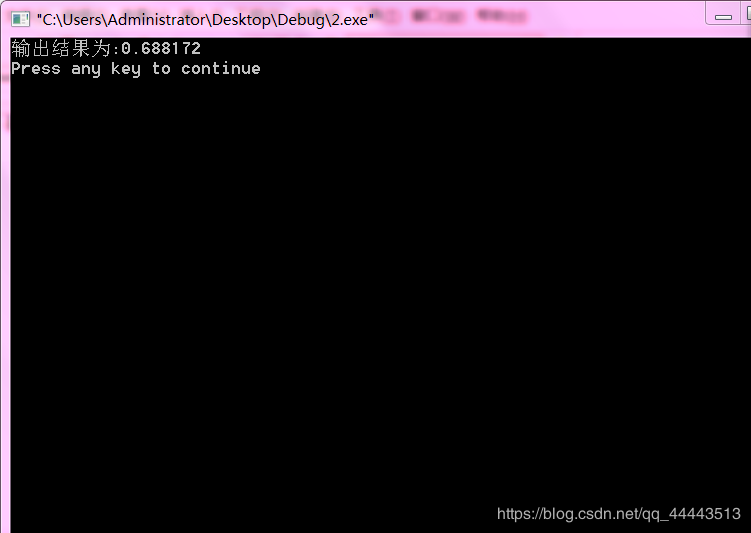
Exercise 1: Input 10 numbers in turn and output the maximum value
#include <stdio.h>
int main()
{
int n = 1, max, a;
printf( "Enter ten numbers:" );
while ( n <= 10 )
{
scanf( "%d", &a );
if ( a > max )
max = a;
n++;
}
printf( "max=%d\n", max );
}
The results are as follows:
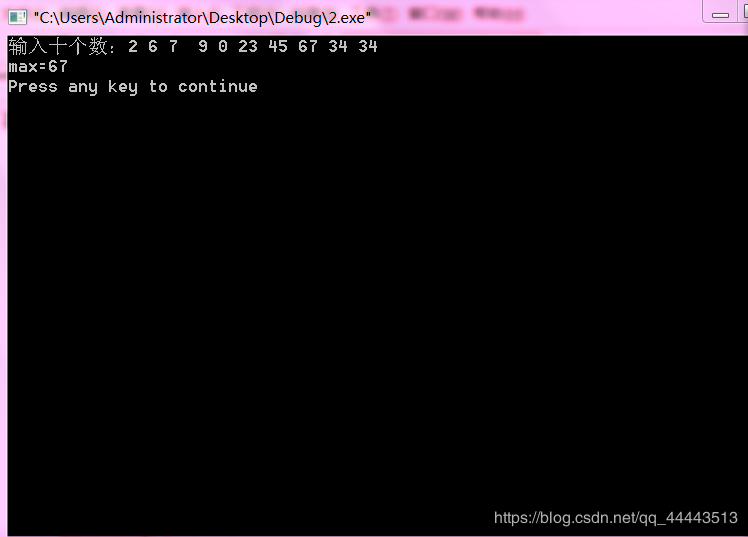
Exercises 2 and 3 from small to large output
#include <stdio.h>
int main()
{
int a, b, c, t;
printf( "Input three numbers:" );
scanf( "%d%d%d", &a, &b, &c );
if ( a > b )
{
t = a;
a = b;
b = t;
}
if ( a > c )
{
t = a;
a = c;
c = t;
}
if ( b > c )
{
t = b;
b = c;
c = t;
}
printf( "%d %d %d\n", a, b, c );
}
The results are as follows:
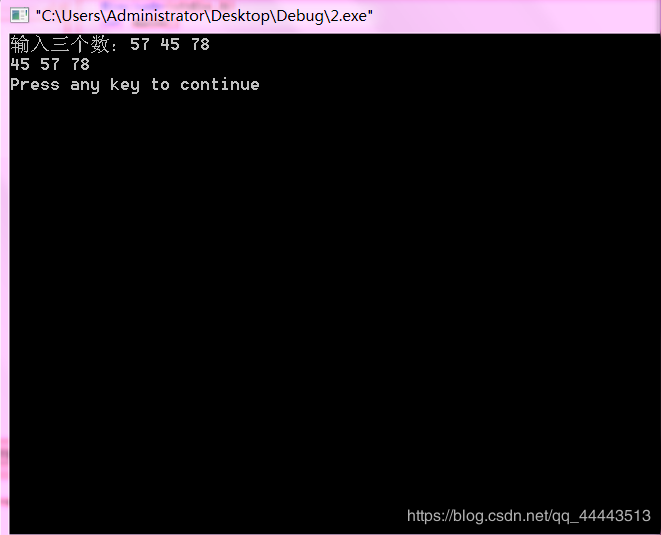
Exercise 3: 1 + 2 + 3 * 100
#include <stdio.h>
int main()
{
int i, sum = 0;
for ( i = 1; i <= 100; i++ )
sum = sum + i;
printf( "The result is:%d\n", sum );
}
The results are as follows.
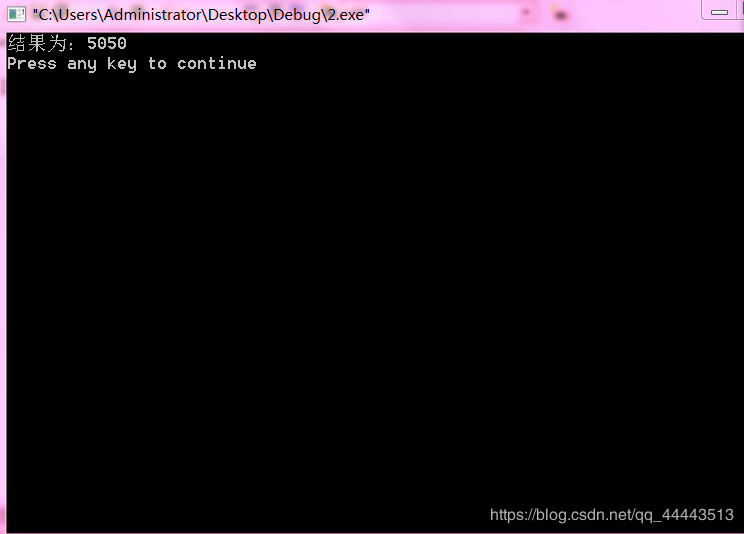
Exercise 4 after class to determine whether a number can be divided by three and five at the same time
#include <stdio.h>
int main()
{
int i;
printf( "Enter a number:" );
scanf( "%d", &i );
if ( i % 3 == 0 && i % 5 == 0 )
printf( "\n Can be divisible at the same time\n" );
else
printf( "\n Not divisible at the same time\n" );
}
The results are as follows:
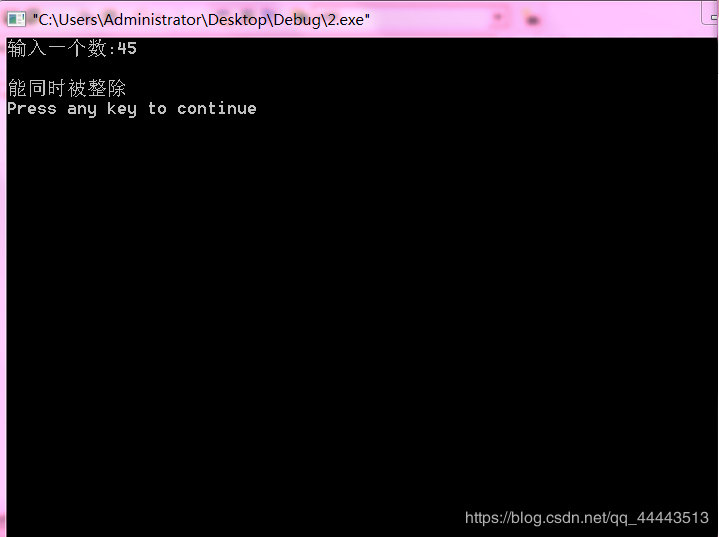
Exercise 5 will output prime numbers between 100 and 200
#include <stdio.h>
int main()
{
int i,j;
int count=0;
for (i=101; i<=200; i++)
{
for (j=2; j<i; j++)
{ if (i%j==0) break;
}
if (j>=i)
{
count++; printf("%d ",i);
if (count % 5 == 0)
printf("\n");
}
}
}
The results are as follows:
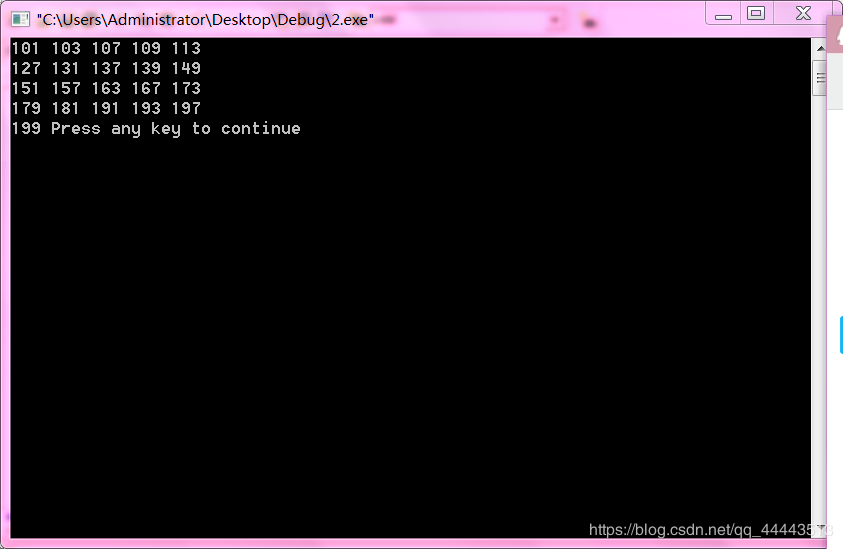
Exercise 6 Finding the Maximum Common Number of Two Numbers m and n
#include <stdio.h>
int main()
{
int m, n, t;
printf( "Enter two numbers:" );
scanf( "%d%d", &m, &n );
if ( m < n )
{
t = n;
n = m;
m = t;
}
t = m % n;
while ( t != 0 )
{
m = n;
n = t;
t = m % n;
}
printf( "Maximum common denominator%d\n", n );
}
The results are as follows:
